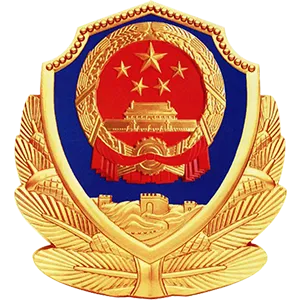Project management is a professional trade that is omnipresent in any industry. Project managers are at the forefront of projects of various sizes: leading, managing and striving toward delivery. I have been in project management for a good portion of my career and have seen my share of good and bad project managers. The following is a compilation of what makes a good project manager good and where they can fall short.
A good project manager takes responsibility for an entire project. They understand the critical path, the timeline and the overall budget. A good project manager is ultimately the CEO of their project and they run it as a mini-company — with its own resources, budgets and scope. They create a team culture and understand the team member dynamics and personalities.
While a good project manager provides clear definitions of everyone's role on a project, a bad project manager offloads the overall responsibility on others, claiming they are just there to "oversee" things. They complain that there are never enough funds, timelines are too condensed and they lack proper resources. A bad project manager is there to just participate and not lead. They don't have a clear understanding of various roles on a project.
Good project managers understand and know their market and the industry of their projects. They study the competition and evaluate alternatives. A good project manager stays up to date on the latest trends in the industry of their project, and they exhibit a solid understanding and expertise of their industry. A good project manager takes ownership over devising and executing a plan that delivers results, not excuses.
They are extremely organized and can clearly prioritize any task, any requirement, any issue.
A bad project manager has a library of excuses to use for various situations. They are unable to clearly articulate the overall plan and rely significantly on others to complete their part. A bad project manager does not have an understanding of their domain of expertise, and they do not take the initiative to build up their knowledge base. They constantly use the excuse of having too many meetings, too many phone calls and too many issues to resolve.
A good project manager is extremely efficient — whether it be with their time or their resources. A good project manager runs exceptional meetings and they are known for it, and people actually look forward to those meetings because they produce results.
Examples of a good meeting:
- Clearly defined agenda upfront with specific objectives to be accomplished during that meeting.
- Resources and subject matter expertise that is required in that meeting in order to accomplish these goals. ("If I am invited to this meeting, then it means I am in fact needed and I don't have questions why they are inviting me.")
- Clear meeting roles: someone to capture notes, someone to share the screen or set up technical tools upfront, etc.
- Time limits and well-executed facilitation. Each participant gets an opportunity to provide their opinion.
- Well-structured meeting recap with clear discussion points and action items. Action items specify the owner of that item, description and the deadline.
A bad project manager has no good sense of structure and time. They run meetings inefficiently, which result in participant frustration and complaints to VP of PMO. Bad project managers don't understand the importance of building a brand and reputation as a project manager who runs effective meetings, holds people accountable and delivers results. A bad project manager has no skills in managing multiple priorities and gets easily overwhelmed.
A good project manager does not demand dates from their resources; instead, they provide recommendations and options, as well as considerations and potential risks to take into account in order to estimate a particular task. A good project manager produces artifacts, and they have all of the documentation readily available and organized in one place. Every team member of a particular project has a clear understanding of where to go and how to find any type of document.
A good project manager is extremely proactive, when it comes to anticipating a particular issue, a question or a risk. They are able to foresee when a particular report will be asked by an executive and they make an effort to provide for that in advance. A good project manager is extremely consistent, whether with their timely delivery of the weekly status report or scheduling a prep session for the executive steering committee. They do not wait for someone to request it.
A good project manager is great at sales and negotiation. They understand the semantics of creating a win-win situation whether when securing a budget or a resource for a project. A good project manager is capable of securing buy-in from key stakeholders way in advance of when the decision needs to be made. A bad project manager creates conflict situations when it comes to negotiating for resources or funds for a project. They escalate things immediately because they are incapable of arriving at a mutually inclusive solution for a given situation.
A bad project manager is all over the place. They fit that stigma of "glorified secretary or an admin" because they only ask simple questions like, "When are you going to be done with that task?" Bad project managers scramble at the last minute to produce any type of documentation as they do not see it coming in the first place. A bad project manager puts out fires all day long instead of focusing on leading a project. They simply voice their opinions and don't take action when it comes to documenting these decisions or taking written positions when it comes to important issues.
In summary, these points cover various phases of the project management life cycle, especially when it comes to managing software development projects. IT projects are sponsored by stakeholders who represent various functional areas within the organization, and it is imperative for a project manager to be able to navigate these waters effectively.





